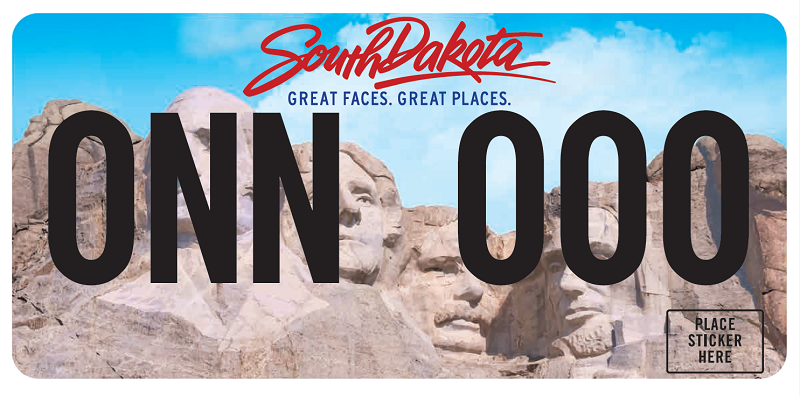
John Hult/South Dakota Searchlight – A state department will use an online dictionary to determine which words should be disallowed on license plates.
The South Dakota Department of Revenue has released its updated vanity plate policy. The update comes after a recent settlement in a lawsuit over First Amendment rights violations embedded in the previous policy.
The new policy removes the “offensive to good taste and decency” standard, successfully challenged in federal court by an applicant named Lynn Hart and the American Civil Liberties Union of South Dakota. The standard was subjective and inconsistently applied, the ACLU argued, and amounted to an unconstitutional policy – a fact presented to and ignored by the Legislature in 2008.
The new policy clarifies how far an applicant can go with a personalized plate before being denied. It strikes the previous “good taste” standard in favor of one that will reject “vulgar or swear words as defined in Merriam-Websters online dictionary as vulgar, profane, offensive, or having a sexual connotation.”
Applicants also can’t replicate a currently used personal plate; use special characters like dollar signs or question marks, letter and number combinations that might confuse law enforcement; or that “mimic or pretend to represent any law enforcement agency or emergency service provider.”
The full policy, officially updated on Tuesday, is available online. The state also maintains a website through which residents can check to see if their preferred license plate has already been claimed by someone else.
South Dakota State University sports fans, for example, can’t get a plate that reads “GOJACKS,” because it’s already taken. University of South Dakota fans can’t claim the title of “YOTEFAN.”
A news release from the revenue department also notes that anyone whose plate application had previously been denied for running afoul of the “good taste and decency” standard can now reapply.
The lawsuit’s primary disputes, meanwhile, were settled officially with Tuesday’s signature from U.S. District Court Judge Roberto Lange. Questions of attorney fees and who will pay them remain.
